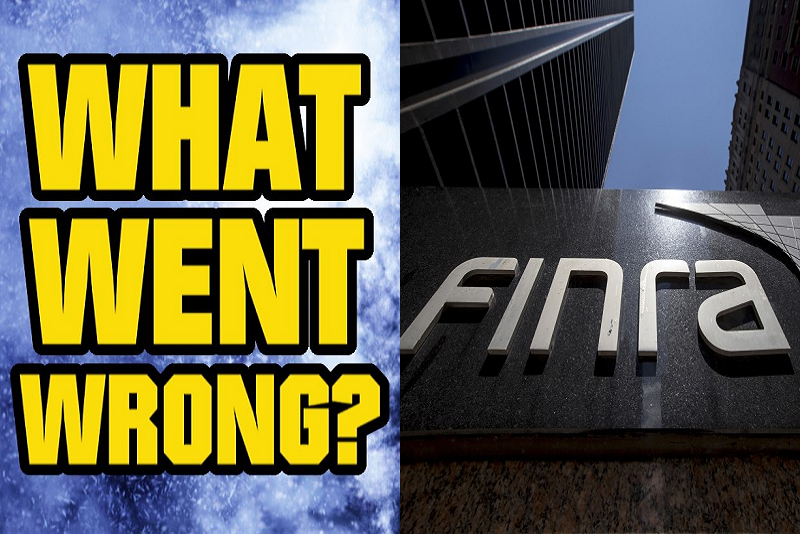BROWSE BY TOPIC
- Bad Brokers
- Compliance Concepts
- Investor Protection
- Investments - Unsuitable
- Investments - Strategies
- Investments - Private
- Features/Scandals
- Companies
- Technology/Internet
- Rules & Regulations
- Crimes
- Investments
- Bad Advisors
- Boiler Rooms
- Hirings/Transitions
- Terminations/Cost Cutting
- Regulators
- Wall Street News
- General News
- Donald Trump & Co.
- Lawsuits/Arbitrations
- Regulatory Sanctions
- Big Banks
- People
TRENDING TAGS
Stories of Interest
- Sarah ten Siethoff is New Associate Director of SEC Investment Management Rulemaking Office
- Catherine Keating Appointed CEO of BNY Mellon Wealth Management
- Credit Suisse to Pay $47Mn to Resolve DOJ Asia Probe
- SEC Chair Clayton Goes 'Hat in Hand' Before Congress on 2019 Budget Request
- SEC's Opening Remarks to the Elder Justice Coordinating Council
- Massachusetts Jury Convicts CA Attorney of Securities Fraud
- Deutsche Bank Says 3 Senior Investment Bankers to Leave Firm
- World’s Biggest Hedge Fund Reportedly ‘Bearish On Financial Assets’
- SEC Fines Constant Contact, Popular Email Marketer, for Overstating Subscriber Numbers
- SocGen Agrees to Pay $1.3 Billion to End Libya, Libor Probes
- Cryptocurrency Exchange Bitfinex Briefly Halts Trading After Cyber Attack
- SEC Names Valerie Szczepanik Senior Advisor for Digital Assets and Innovation
- SEC Modernizes Delivery of Fund Reports, Seeks Public Feedback on Improving Fund Disclosure
- NYSE Says SEC Plan to Limit Exchange Rebates Would Hurt Investors
- Deutsche Bank faces another challenge with Fed stress test
- Former JPMorgan Broker Files racial discrimination suit against company
- $3.3Mn Winning Bid for Lunch with Warren Buffett
- Julie Erhardt is SEC's New Acting Chief Risk Officer
- Chyhe Becker is SEC's New Acting Chief Economist, Acting Director of Economic and Risk Analysis Division
- Getting a Handle on Virtual Currencies - FINRA
ABOUT FINANCIALISH
We seek to provide information, insights and direction that may enable the Financial Community to effectively and efficiently operate in a regulatory risk-free environment by curating content from all over the web.
Stay Informed with the latest fanancialish news.
SUBSCRIBE FOR
NEWSLETTERS & ALERTS
FINRA Catches Up with Broker Who Gamed the IPO System
by Howard Haykin
Judy Buchanan Healy agreed to a $25K fine and a 45-day suspension to settle FINRA charges that she sold, or caused to be sold, an initial public offering (“IPO”) to the account of an immediate family member.
BACKGROUND. Healy, a resident of West Melbourne, FL, had 15 years’ experience with one firm – Merrill Lynch – serving as a General Securities Representative. Healy was U5’d on 7/8/15 for “conduct including the omission of facts in connection with the trading of new issues in a family member’s account.” Healy, who currently is not associated with a FINRA member firm, had no prior disciplinary history.
FINRA FINDINGS. In December 1999, Healy opened an account at Merrill for her father, Charles Buchanan and acted as his financial advisor of record. In her capacity as the FA for this account, Healy sold, or caused to be sold, 53 IPOs to her father's account - all within the 3-year period, 11/16/11 to 11/19/14. At the time of the sales, Healy's father was a restricted person under FINRA Rule 5130 because he was her immediate family member.
In relevant part, FINRA Rule 5130 prohibits a member or a person associated with a member from selling, or causing to be sold, a new issue to any account in which a restricted person has a beneficial interest.
FINANCIALISH TAKE AWAY. I have no doubt that, when Healy began her career in 1999 as a Merrill Lynch broker, she knew right from wrong - i.e., that her father qualified as a restricted person. And when she opened his Merrill account – perhaps on her very first day – it’s likely that Merrill’s New Account Form required brokers to check off whether the new customer was a restricted person.
Yet, 12 years later Charles Buchanan "went on a tear" participating in IPO offerings - 53 deals. Over a 3-year period, no less. At the time it U5'd Ms. Healy, Merrill indicates that Healy caused the violations by noting that she omitted facts about a family member’s account.
Okay. But if so, how and when did this occur?
- Did Healy falsely code her father’s account as “unrestricted” back in 1999?
- Did Healy subsequently override the system to code the account as “unrestricted?”
- Was Merrill Lynch’s back office or operations somehow negligent in its processing of new accounts and/or new issue offerings?
Those are some of the unanswered questions in this case, and FINRA opted not to provide definitive insight or answers. Likewise, FINRA failed to comment on whether any ill-gotten profits were recaptured from either Charles Buchanan or daughter Judy Healy. Answers to these questions might yield insight into how FINRA member firms can prevent such violations in the future. It also would provide unquestionable evidence that "crime doesn't pay."
This case was reported in FINRA Disciplinary Actions for August 2017.
For details on this case, go to ... FINRA Disciplinary Actions Online, and refer to Case #2015046150901.





